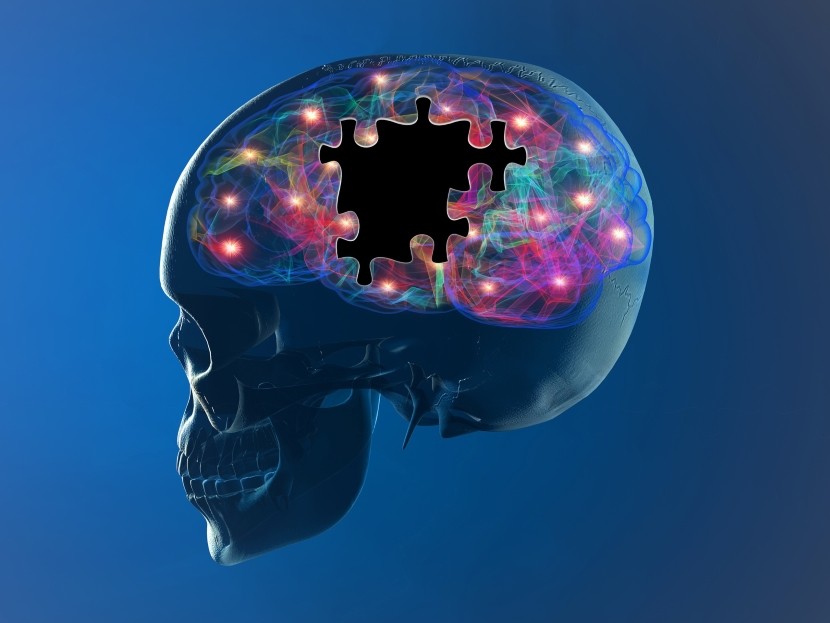By the age of 85, nearly half of all Americans have developed Alzheimer's, says Neal Barnard, MD. This progressive disease of the brain steals memories and breaks the connections to the important people in our lives. Dr. Barnard understands the devastating effect of Alzheimer's better than most. His parents and all four of his grandparents died with the disease. But Dr. Barnard knows some things his family didn't, and he's planning to beat the odds by following three basic steps.
Scientists have discovered that the plaques in the brain which disrupt the retrieval of memories are comprised of metals: iron, copper, and zinc. Dr. Barnard identifies food, cookware, and supplements as the sources of excess amounts of these metals in our diet. For optimal health, we need only a traces of these minerals. "If you're overdosing, you're playing Russian roulette with your brain," says Dr. Barnard. But he says, it's easy to eliminate the sources of excess minerals in our diet once we've identified them.
As a guest on the Dr. Oz Show, Dr. Barnard offers specific suggestions for avoiding Alzheimer's disease. Some of these ideas — like avoiding fish — are surprising to Dr. Oz, who has long advocated seafood as a protection against Alzheimer's. Dr. Barnard explains why eating fish is not healthy for the brain. Although fish have some omega 3, Dr. Barnard tells us that fish are loaded with metals and are very high in several different kinds of fat. Animal foods all contain some amounts of saturated fat, and says, Dr. Barnard, "The combination of a high fat diet — high saturated fat — plus high copper, put those two together, that's the equivalent of 19 extra years of ... cognitive decline as a result of that combination." Dr. Oz is also amazed that some of the basic information on protective vitamins in foods hasn't been better publicized.
In the video below, Dr. Barnard shares his plan for avoiding Alzheimer's. He's broken it down into three simple steps that can walk us into a memory-strong future.
Dr. Barnard's three-step plan to prevent Alzheimer's starts with diet. He suggests that we replace animal foods in our diet with the power foods that contain all the trace minerals we need without excess metals or unwanted fats. The power foods that comprise the anti-Alzheimer's diet are fruits, vegetables, legumes, and whole grains. These whole plant foods supply all the nutrients we need for brain health and will give us the benefit of trimmer waistlines.
The second step is to create a "vitamin shield" over our brain. Foods with vitamin E — not vitamin E pills, says Dr. Barnard, are particularly protective against Alzheimer's, cutting the risk by 25 to 70 percent. Sweet potatoes, broccoli, and mangos are examples of whole plant foods high in vitamin E. Three of the B vitamins found in foods are also vital to brain health, says Dr. Barnard. Vitamin B6 is found in corn, beans, and brown rice. Another B vitamin, folate — which has the same root as the word foliage, is abundant in leafy, green vegetables and beans. And vitamin B12 (preferably as hydroxycobalamin) is also important, but must be taken supplementally either in pill form or from fortified foods such as non-dairy milks.
Dr. Barnard's last step is the mental trick of "linking." This technique to improve memory is the type of mental exercise that keeps the mind sharp. He suggests using mental images to enhance the ability to remember information. "A bland image is not going to work, but [if] I make it a little crazy, a little exaggerated, a little goofy" then, he says, he'll be able to remember a new name or items on a to-do list.
By following these three steps, Dr. Barnard believes that we can avoid this disease which steals us from our loved ones even as we remain in their care. His simple plan reminds us that we control our destiny, not our genes. As we chose to eat low-fat, whole plant foods, as we exercise our bodies and our memories, we are taking taking charge of our tomorrows. Our choices today provide our best opportunity for our minds and bodies to enjoy optimal health as we age.
